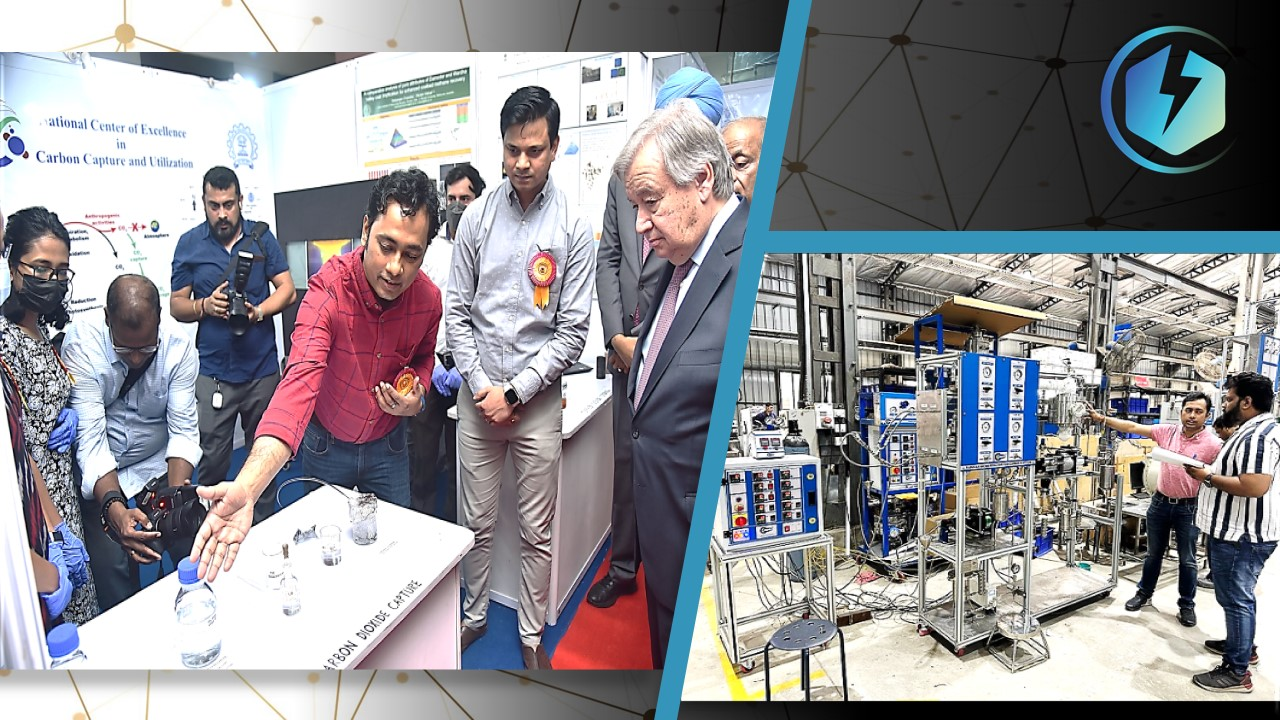A Mumbai-based start-up has developed an aqueous-based CO2 capture technology comprising a new catalyst that is robust, cost-effective, and scalable. This technology has the capability to capture CO2 in industrial wastewater, marking a significant milestone in the country's transition towards climate-friendly technologies.
The innovation emerged from research work at the Department of Science and Technology (DST) supported National Centre of Excellence in Carbon Capture and Utilization (NCoE-CCU) at IIT Bombay. The Technology Business Incubator (TBI) of IIT Bombay (Society For Innovation & Entrepreneurship – SINE) nurtured UrjanovaC, which was fueled by a vision to revolutionize clean energy solutions.
The DST-supported National Centre of Excellence in Carbon Capture and Utilisation (NCoE-CCU) at IIT Bombay has been at the forefront of developing cost-effective CO2 capture and conversion solutions. In efforts to support India's goal for net-zero emissions by 2070, the National Center is actively working towards developing novel, scalable, and affordable pathways for capturing CO2 from various emission sources and converting it into valuable chemicals or permanent storage, representing a crucial pathway for greenhouse gas mitigation.
DST also established the TBI (SINE) at IIT Bombay (along with many others in academic/technical/R&D Institutions as part of the NIDHI programme to support and nurture knowledge-driven innovative start-ups into successful enterprises. The DST provided UrjanovaC access to a network of seasoned mentors and advisors who brought invaluable industry insights and guidance to UrjanovaC's leadership team. They also offered strategic advice that accelerated UrjanovaC's growth trajectory and facilitated networking opportunities.
UrjanovaC's award-winning technology can capture CO2 from both industrial flue gas and ambient air in the presence of water, which can be industrial wastewater or even seawater. It relies upon earth-abundant elements along with non-potable water to pave the pathway for a sustainable carbon management process implementable for multi-billion-ton CO2 removal. The captured CO2 can be subsequently converted to high-value minerals while the catalyst gets recycled. It will ensure the efficient capture of CO2 to permanently fix them as stable mineral carbonates, thereby providing a sustainable CCUS technology.
The founders, Prof. Vikram Vishal and Prof. Arnab Dutta, both faculty members at IIT Bombay, were inspired to generate energy with a minimal carbon footprint by the pressing need for efficient CO2 management technologies. Their brainstorming sessions led to the conceptualization of an integrated and innovative approach to mitigate this problem. The technologies being pursued by UrjanovaC have received multiple recognitions such as the CCS X-Prize, supported by the Elon Musk Foundation, the ArcelorMittal’s X-Carb™ finalist, and the Open-Air Collective carbon-dioxide removal (CDR) Prize.
The system can be widely employed in the energy sector of the upcoming smart cities to lay the blueprint for carbon footprint-free power generation and provide solutions for reducing CO2, a major greenhouse gas. It is an environment-friendly solution that can also reduce slag and waste in industries like steel, cement, and chemicals.
The patented technology, which is at TRL 5, will significantly help industries to minimize their carbon footprint without compromising their production capacities. Apart from being an eco-friendly process, the technology also decarbonizes faster than any other in-market technologies and produces valuable end products that can be further used by industries as a waste-to-wealth solution. The team is currently focusing on the deployment of their first 3 tonnes-per-day CO2 capture pilot at IIT Bombay.
With technology as well as commercial partners like the National Center of Excellence in Carbon Capture and Utilization, Sprih, SINE, GDC at IIT Madras, Abhitech, and Venture Centre, the team is scaling up the technology rapidly.
The scalable and commercially viable solution could create multiplicative macro and micro-economic opportunities, including job creation, growth of the CCUS market, as well as strategic alliances. Besides, the end products of this CO2 capture technology are high-value minerals like carbonates, which is itself a multi-billion-dollar industry.































